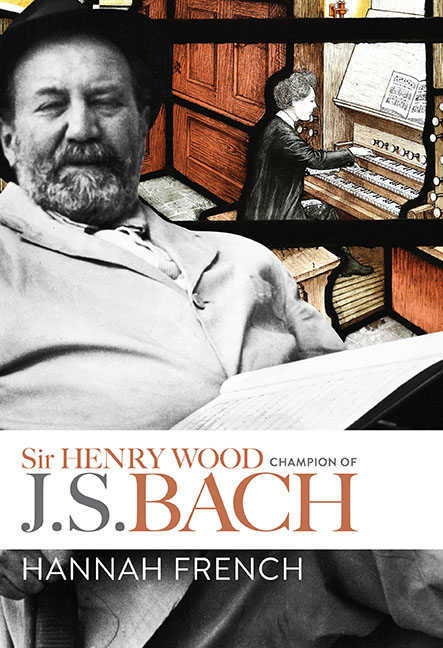Book contents
- Frontmatter
- Dedication
- Contents
- List of Illustrations
- List of Music Examples
- List of Tables
- Prologue
- Acknowledgements
- List of Abbreviations
- PART I CONTEXTUALISING
- Introduction: Wood's Role in the English Bach Revival
- 1 Bach in Pre-Proms England
- PART II PROGRAMMING
- PART III INTERPRETING: ORCHESTRAL WORKS
- PART IV INTERPRETING: VOCAL WORKS
- PART V INFLUENCING
- APPENDICES
- Bibliography
- General Index
- Index of Works by J.S. Bach
1 - Bach in Pre-Proms England
from PART I - CONTEXTUALISING
Published online by Cambridge University Press: 07 September 2019
- Frontmatter
- Dedication
- Contents
- List of Illustrations
- List of Music Examples
- List of Tables
- Prologue
- Acknowledgements
- List of Abbreviations
- PART I CONTEXTUALISING
- Introduction: Wood's Role in the English Bach Revival
- 1 Bach in Pre-Proms England
- PART II PROGRAMMING
- PART III INTERPRETING: ORCHESTRAL WORKS
- PART IV INTERPRETING: VOCAL WORKS
- PART V INFLUENCING
- APPENDICES
- Bibliography
- General Index
- Index of Works by J.S. Bach
Summary
The overture and suite of Bach must be regarded rather as a curiosity than as a specimen of musical beauty.
(James W. Davison, Musical Times, 1844)IN his lifetime Bach witnessed the reputations of his sons Wilhelm Friedemann and Carl Philipp Emmanuel begin to supersede his own. This was to be expected: eighteenth-century culture favoured the latest musical trends over the preservation of past masterworks. Johann Sebastian could hardly have imagined that history would immortalise him simply as Bach. Nor could he have envisaged that devotees in London would play such a large part in the rediscovery and popularisation of his music.
The story of Bach's revival in England is not one of a sudden mass awakening to the genius of the composer, but rather a stop-start series of experiments and personal revelations. Take the year 1885. The 200th anniversary of Bach's birth offered the opportunity to focus on the composer, but Bach was still a historical curiosity, as the journalist Henry Sutherland Edwards demonstrates:
Bach's music, apart from his Fugues and a few minor pieces written for the pianoforte (or rather the harpsichord) and for the violin, is seldom rendered now-adays, except by societies specially organised for the performance of his music. Judged, not by the date of his birth but by the character of his work, he seems an older master than Spenser, and very much older than Shakespeare, whose plays are better known, more generally admired, and in the fullest sense more popular now than in the days of Queen Elizabeth.
Positioning the character of Bach's compositions earlier than those of Shakespeare was a mark of antiquarianism, and despite the emerging recognition that ‘to the composers of Europe Bach is probably better known than Handel’, Handel was unsurprisingly presented as the more dominant figure of these ‘archaic’ masters:
In England, where Handel passed the best part of his life and where he was actually domiciled for half a century, the enthusiasm felt for the works of Bach cannot, the number of the faithful being taken into account, be compared to that which is felt for the works of Handel.
- Type
- Chapter
- Information
- Sir Henry Wood: Champion of J. S. Bach , pp. 9 - 22Publisher: Boydell & BrewerPrint publication year: 2019



